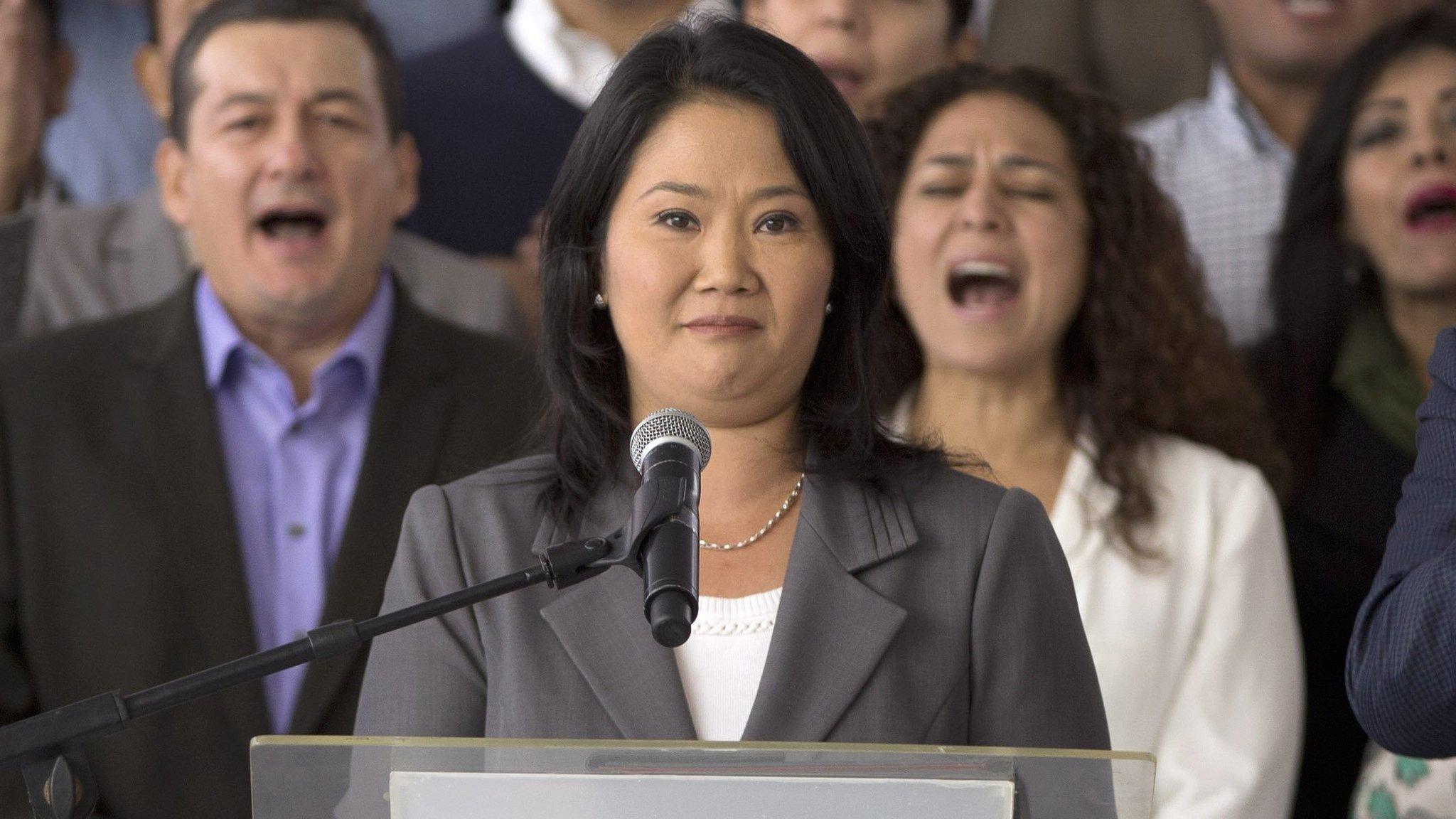Peru family drama threatens South America's success story
- Published
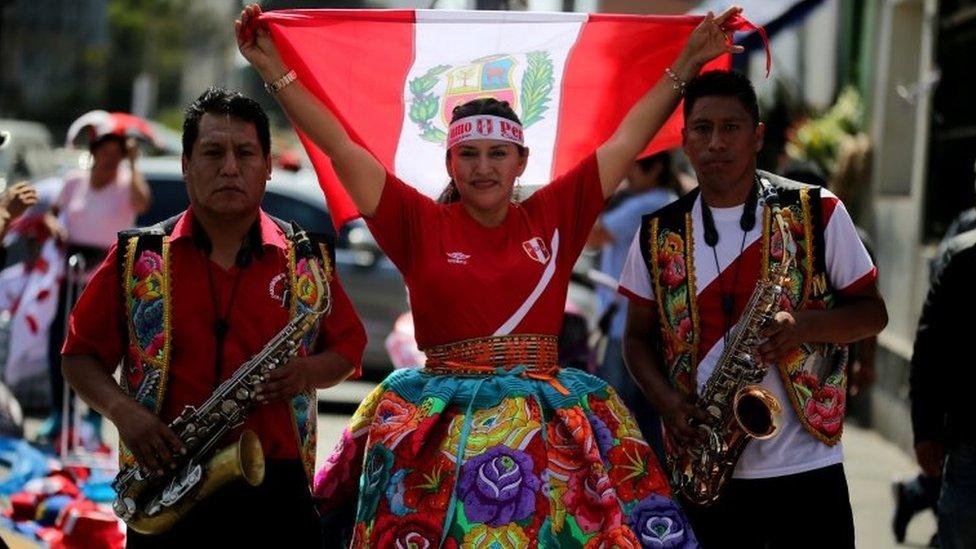
Peruvians had been on a high from qualifying for the football World Cup
Few countries in the world have recently had as many reasons to celebrate as Peru.
First, its national football squad qualified for the World Cup for the first time in 36 years. And then it was announced that the team's star player, Paolo Guerrero, would be allowed to play after a doping ban against him was lifted.
Later this week, this fervently Catholic nation will welcome Pope Francis for the first time since he became pontiff.
But most importantly the economy has been growing consistently and the country is catching up with more developed nations.
For 2018, the government is forecasting 4% of growth, which makes Peru the envy of its neighbours in South America.
Prosperity under threat
But on 24 December a sort of Ghost of Christmas Past came back to haunt the nation, creating an unprecedented political crisis that now threatens to derail some of that prosperity.
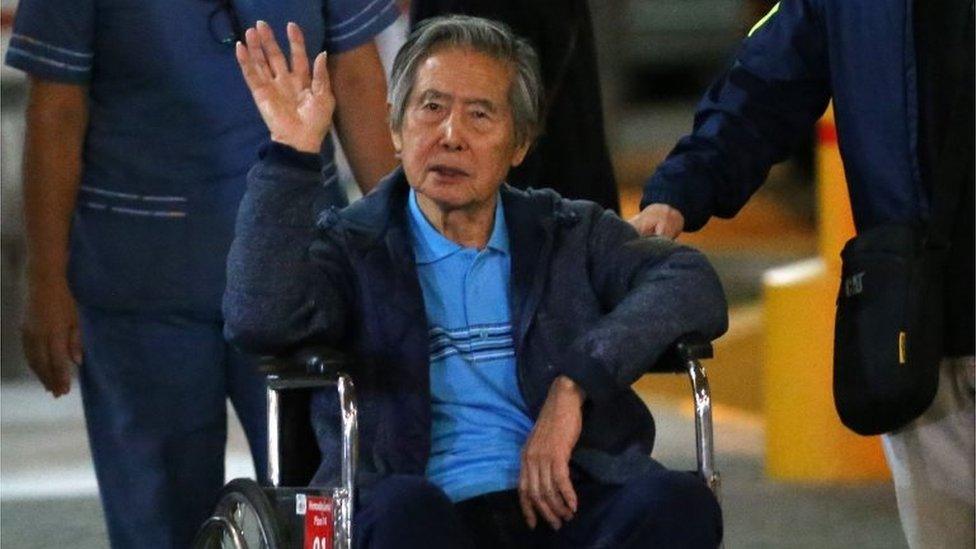
Alberto Fujimori's pardon has divided Peruvian society
Ex-President Alberto Fujimori, who ruled Peru with an iron fist in the 1990s, left prison after receiving a pardon from President Pedro Pablo Kuczynski.
Just three days earlier, President Kuczynski had managed to survive an impeachment vote in Congress thanks to the support of Alberto Fujimori's son, Congressman Kenji Fujimori.
All sides deny any sort of backroom deal was struck, but the improbable coincidence plunged Peru into a deep crisis of confidence.
Family saga
The backdrop to this crisis is a gripping family drama that could easily become a hit television series.
The main character in The Fujimoris would have to be the father, Alberto, a towering figure in Peruvian politics who is credited with bringing hyperinflation under control, fixing the economy and defeating Maoist rebels during his tenure from 1990 to 2000.
But Alberto Fujimori is also a convicted criminal. In 2009 he was found guilty of having links to a death squad and two massacres.
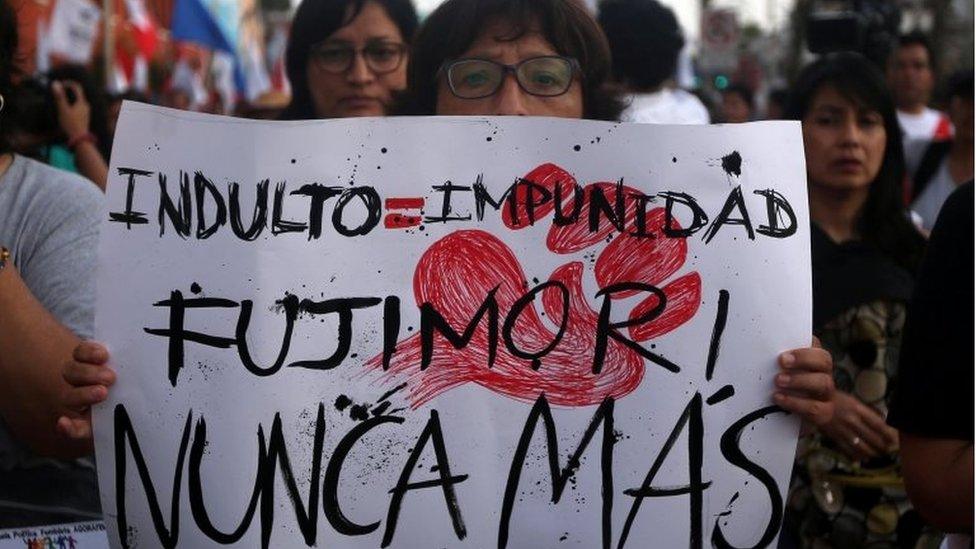
Peruvians have been taking to the streets to protest against Fujimori's pardon
Sentenced to 25 years life in prison in 2009, when he was 70 years old, most Peruvians assumed the former leader would spend the rest of his life in jail.
But following his pardon, Alberto Fujimori is back on the political scene and two of his children are playing key roles, too.
His 42-year-old daughter Keiko leads a political movement called Fujimorismo, which closely follows her father's policies.
She fell just a few votes shy of beating Pedro Pablo Kuczynski in the 2016 presidential election and came close to toppling the president last month when she lead an impeachment movement against him.
The impeachment proceedings focussed on allegations that President Kuczynski received illegal payments from Brazilian construction giant Odebrecht, which is at the centre of a massive corruption scandal.
President Kuczynski only survived the impeachment vote thanks to the help of Keiko Fujimori's brother, Kenji.
While the siblings are members of the same Popular Force party, they have become estranged and on the day of the impeachment vote Kenji convinced nine fellow party members to abstain.
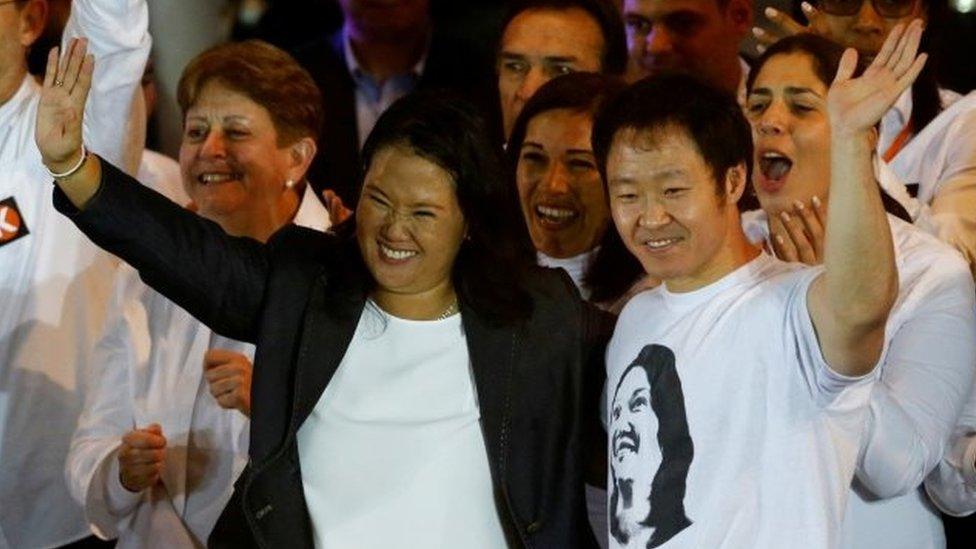
Keiko and Kenji Fujimori are in the same party but they do not always see eye to eye
The result was that his sister fell short of the votes needed to impeach President Kuczynski, even though her party has an absolute majority in Congress.
Many Peruvians think that Keiko Fujimori's attempt to bring down the president was thwarted by her brother's attempt to get their father released from prison.
Even party insiders such as Popular Force lawmaker Héctor Becerril think that "there was some sort of deal".
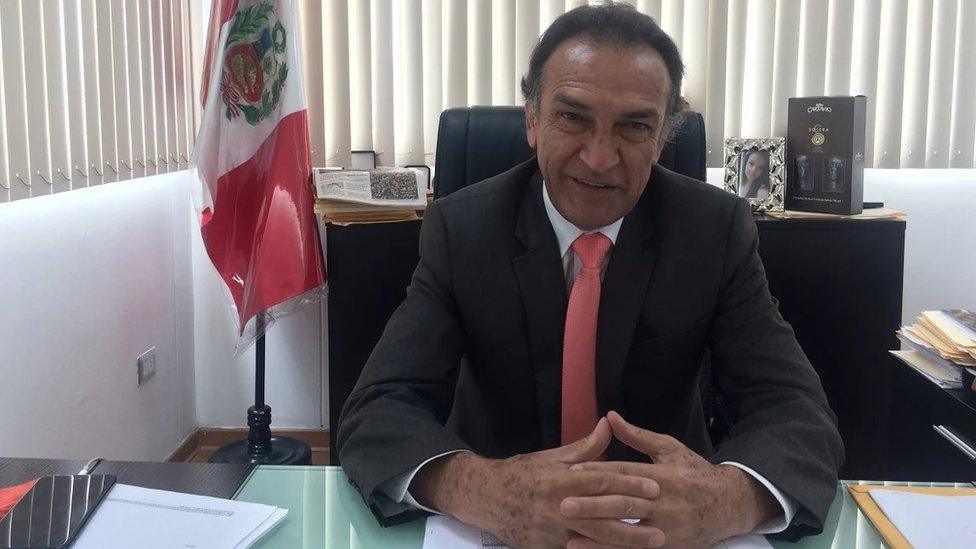
Héctor Becerril thinks Kenji Fujimori abstained from the impeachment vote because he reached some kind of deal
"What exactly was negotiated, I don't know. Something must have happened under the table and now we are opening an inquiry in our party to investigate," Mr Becerril said.
Popular disillusion
Many Peruvians are disillusioned by the talk of underhand deals and the ins and outs of the Fujimori family feud.
Since Alberto Fujimori was pardoned, four major street demonstrations have been held in protest.
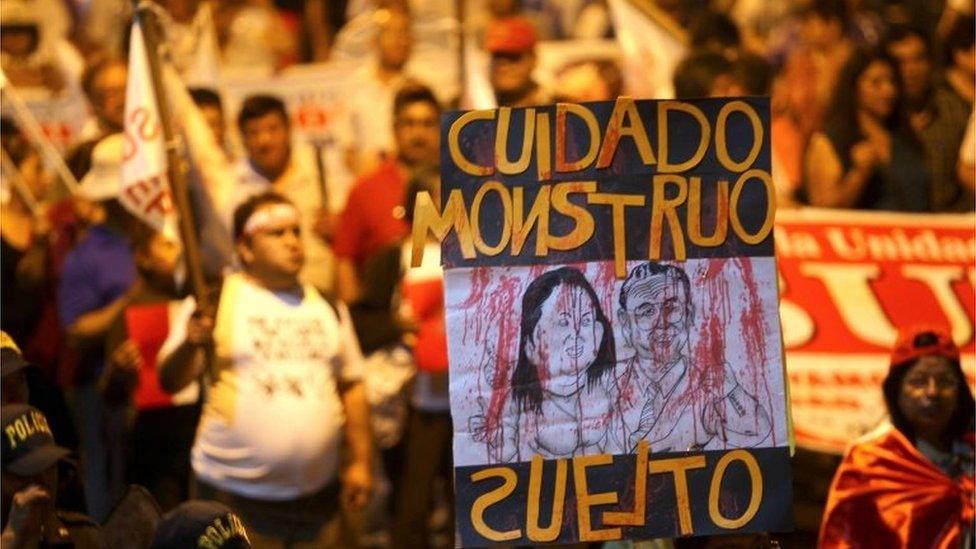
Opponents of Alberto Fujimori say he is a "monster" who should stay in jail
Some analysts fear the government has lost its credibility, and a government reshuffle has done little to regain people's confidence.
And then there are the allegations of corruption.
Not only President Kuczynski but virtually all major political players in Peru have been named in connection with the Odebrecht scandal.
That raises doubts about who will be able to take the country forward. For most businesses, the environment is tough.
In Lima's business district, I meet Ian Sznak, a young entrepreneur who champions ethical businesses.
He says it is becoming increasingly difficult to demonstrate that Peru has a good, clean business environment where fair companies can succeed.
"This kind of corrupt way was the normal way," he says.
"It was a completely normalised way of doing business. We have to prove them wrong. [We have to prove] that Peru still has many opportunities."
Confidence on the wane
But most economists retain some confidence in Peru's sound financial basis. Despite concerns, they do not see Peru plunging into a severe economic crisis as happened in corruption-wracked Brazil over the past three years.
Higher copper prices and increased public spending mean Peru is likely to continue outperforming its neighbours in the region throughout 2018.
But much of the confidence in its leadership is now gone, Ian Sznak says.
"The first of December everything was fine. And just in one day it all changed," he explains.
"What they are saying now is that we are not going to grow 4%. You don't know, but that's the region. That's Latin America, it changes every day."
- Published7 January 2018
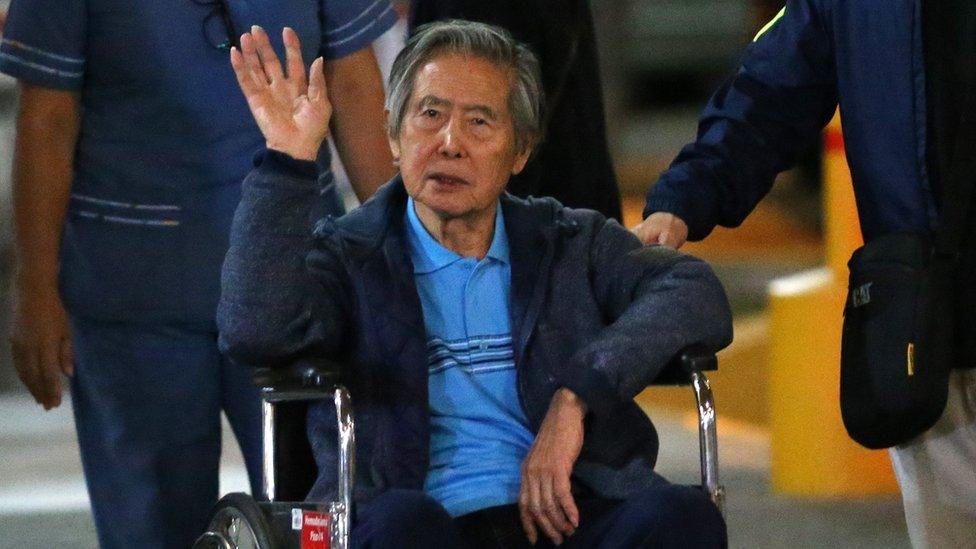
- Published4 September 2023
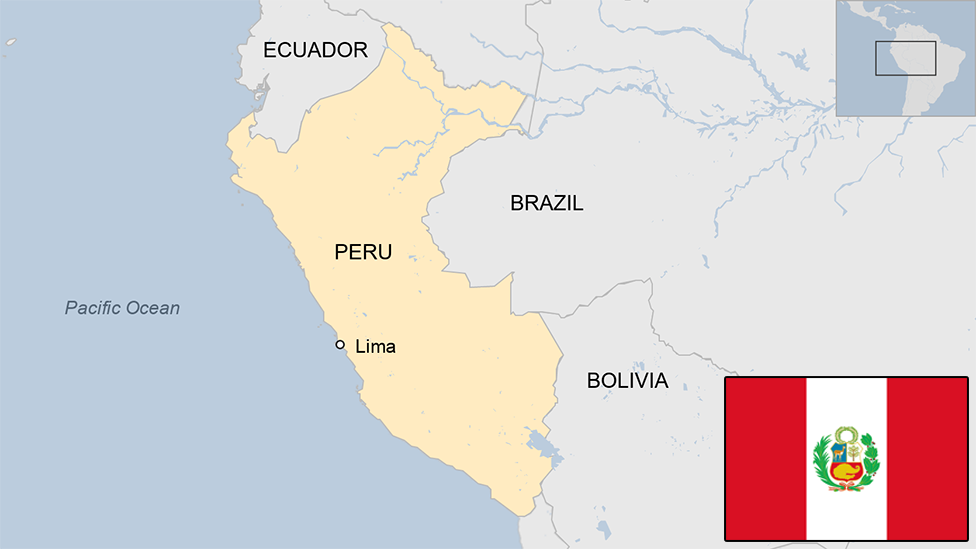
- Published17 April 2019
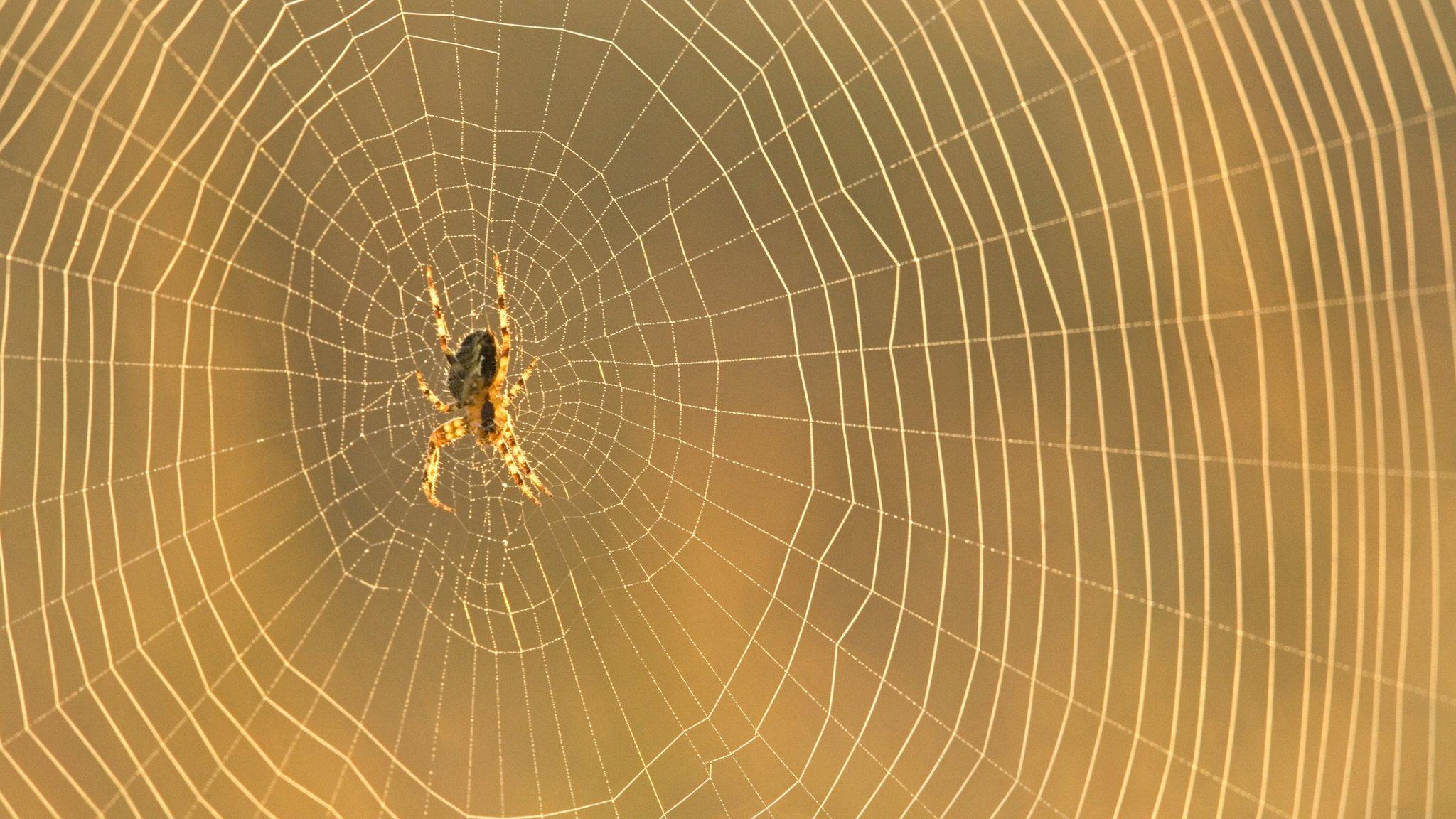
- Published10 June 2016
